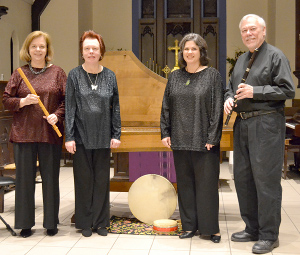Douglas Weeks, the Converse College professor who spends summers chairing the piano program at the Brevard Music Center, began the evening by playing “Harmonies du Soir” from Franz Liszt’s Transcendental Etudes. He then became the Master of Ceremonies, introducing three students and four other faculty members who took part in this program observing the two hundredth birthday of Liszt. The concert, at the Porter Center of Brevard College, was this year’s Steinway Gala, and in attendance was Ron Losby, President, Steinway & Sons – Americas, who made some brief comments, quoting Victor Hugo that “music expresses that which cannot be said and on which it is impossible to be silent.”
Weeks commented that several Brevard Music Center teachers had a direct lineage to Liszt. For example, Franz Liszt taught Theodore Ritter who taught Isidor Philipp who taught Beveridge Webster who taught Craig Nies, thus making Nies a fourth generation heir to the Liszt tradition. That got me researching my four major piano teachers. I, too, am a fourth generation heir, not once but four times over. I am descended from Liszt students Artur Schnabel, Carl Tausig and Ferruccio Busoni (twice) through Leon Fleisher, Oscar Beringer, Rudolf Ganz, and Egon Petri. Somehow, however, my piano technique doesn’t stack up with that of my antecedents; I am a weak link in the chain. But the Brevard performers, both faculty and students, showed no weakness whatever. They were all fitting heirs to Franz Liszt.
The first of the evening’s student performers, Gianne Zhu, studies at Peabody Conservatory. “Le Jeux d’Eau a la Villa d’Este” from Années de pèlerinage is written in six sharps, requiring the pianist to skate over the black keys through much of the piece. Showing delicacy, power and beautiful shaping, Ms. Zhu set the tone for the evening. We were in for broad swaths of romanticism, a feast of tonal color.
If I were forced to choose a high point of the evening, it would be Samuel Gingher playing “Après une lecture de Dante: Fantasia Quasi Sonata,” also from Années de pèlerinage. The Steinway “accelerated action” proved its mettle, delivering the many rapidly repeated grace notes of this piece with great clarity. Mr. Gingher, who is now a doctoral student at the University of Illinois, showed mastery of the “marcatissimo” staccato octaves that drive this work forward, but never subordinated his sense of shape to a display of technique. This was a stunning performance.
Faculty member Sandra Wright Shen completed the first half of the program with Etude No. 6 in A minor from Grandes études de Paganini. This is a set of variations on the Paganini theme that we know better from Rachmaninoff’s later use for piano and orchestra.
The third student performer of the evening (all three being the survivors of a selection process from a much larger number of candidates asking to play) was Lisa Iwaki from the Manhattan School of Music. She played one of the many operatic reflections that Liszt used to wow his audiences with, in this case “Paraphrase de concert sur Rigoletto (Verdi).” Iwaki phrased this work in a manner that evoked the sound of the original opera. Liszt was capable of using the power of the piano in a profoundly instrumental manner but also of using the delicacy of the piano in a profoundly vocal manner.
A curiosity came next. Liszt composed music for “melodramas” wherein spoken poetry was accompanied by episodic piano mood music. Faculty members Margaret Cusack, reciter, and Deloise Lima, piano, presented “The Dead Poet’s Love,” a Hungarian poem that involved a ghost who couldn’t find the right skull night after night for twenty years, but kept visiting his widow anyway asking her to join him in the grave. A weird Gothic horror tale.
Concluding the program was faculty member Craig Nies with “Sposalizio” (again from Années de pèlerinage) and “Wilde Jagd” (another of the Transcendental Etudes). The first piece is a reflection on a Raphael painting of the Virgin Mary, while the second depicts a “Wild Hunt.” The pairing was most fitting, allowing Nies to demonstrate great delicacy in the first and contrasting abandon in the second. Liszt knew all the colors of the spectrum, and this concert demonstrated that fact.











